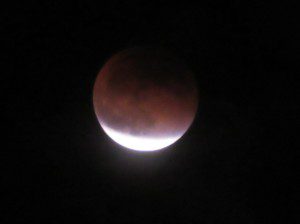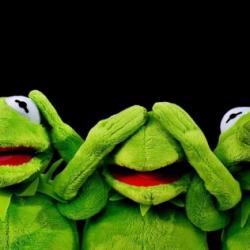 I don’t remember what led to this conversation, but I recall once telling my longtime live-in boyfriend that I believed in the concept of evil, but not sin. “I would’ve thought it would be the other way around,” Keith replied.
I don’t remember what led to this conversation, but I recall once telling my longtime live-in boyfriend that I believed in the concept of evil, but not sin. “I would’ve thought it would be the other way around,” Keith replied.
I explained that I considered sin a religious idea, while evil is undeniably real. Indeed, it has been evident throughout human history. A good example of this way of thinking would be the issue of homosexuality. Evangelicals and the Catholic Church call it a sin; while many other people—including myself—consider the hatred homophobia engenders evil. Some of those same religious people would also opine that Keith and I are living in sin.
And then there’s the idea of Original Sin. I love it that this sin—the crime that supposedly required the Son of God be sacrificed to redeem—was eating from the Tree of Knowledge. That’s clearly a metaphor to everyone but Fundamentalists, but the metaphor has a different meaning altogether for nonbelievers. Why would God want to forbid knowledge? Hmmm.
Christians call it the tree of knowledge of good and evil and say it was the eating of its fruit that lead to the introduction of evil. The Fall is a just-so story to explain aspects of human nature which have always existed. People say the Devil made me do it to excuse behaviour they knew was wrong even as they were doing it.
I think the reason my take on sin surprised Keith was that he was raised a Christian, while I had a completely secular childhood. I didn’t hear anything about sin, but as someone of Jewish ancestry, I did think about the Holocaust. Over seventy years after the death of Adolph Hitler, his name is still synonymous with evil. Though I didn’t grow up with a real sense of Jewish identity, it was hard to escape the knowledge that I would’ve been slated for extermination if I had lived in Nazi occupied lands. And all for a heritage that at the time seemed to hold little relevance to me.
A compelling argument has been made that too much emphasis has been placed on the Holocaust in contemporary Jewish culture. It does indeed tend to distort Jewish self-image, and its legacy all too often leads otherwise liberal Jews to excuse behavior by the state of Israel they would condemn instantaneously if it happened here in the US. However, I’m not sure that this enduring Holocaust trauma is all that different from that engendered by other historical episodes of Jewish persecution, both real and mythological. Christians preach forgiveness, but Jews build holidays around vilifying their oppressors.
Purim is considered a fun holiday for children, as they reenact in colorful costume a spurious biblical story of the secretly Jewish Queen Esther and her cousin Mordecai saving the Jews of Persia from the Snidely Whiplash villainy of Haman, who had convinced the king to slaughter every Jew in the empire. When I was a kid, we played cops and robbers, but we never thought to play genocide. It’s a testament to my thoroughly unJewish upbringing that I had to look up Purim to confirm the details of the above account. When I was a child, the only Jewish holidays I knew about were Passover and Hanukkah. Not that I ever celebrated them, unless you count the time my uncle gave me a dreidel and taught me The Dreidel Song, which is dreadful, dreadful, dreadful.
Passover is a holiday that celebrates Moses liberating the Jews from slavery in pharaonic Egypt and leading them to the Promised Land, a story which most biblical scholars dismiss as a historical fabrication. Let my people go! Okay, um, who are you again? The closest I came to celebrating Passover was to watch Charlton Heston hammily part the Red Sea every year on TV. Tradition says that Moses wrote Exodus, including the report of his own death. Now there’s foresight for you.
And Hanukkah? Well, it was never a big Jewish holiday until Jewish parents needed some PR with their kids, who jealously watched their gentile friends haul in the Christmas loot as they sang popular Christmas songs, many of which, unbeknownst to them, were written by Jews. Hanukkah at least commemorates an event that’s in part grounded in actual history, the Maccabean revolt against the king of Syria. But the bit about the oil lasting eight days instead of one? Bullshit.
Though that story is also a myth, as I watched the English-language news from France 24’s website stream live reports of the massacre from Paris last Friday, I was reminded yet again that evil is all too real. Of course, it’s not caused by Original Sin or the Devil. Far from a myth, evil is an ever-present element in human nature, one which ISIS has in abundance.
As we soon learned, that terrorist plot, like the occupation the Maccabees were rebelling against, emanated from Syria. I read that even Al Qaeda—the perpetrator of 911—considers the tactics of ISIS out of bounds.
An image I saw in the news the next day stayed with me in particular. It was the body of a man lying on his back on a sidewalk, his large frame outlined by the cloth covering him. There were no police or emergency personnel around him; nothing more could be done for him, and there was too much carnage elsewhere to attend to a lone body.
It’s too easy to lay this atrocity simply on religion. And it’s not fair to cast the fault on the flaws of humanity, either. Humans are also capable of great kindness, as many demonstrated on that horrific night and in the following days.
It’s hard to fathom an ideology further from humanism than the one espoused by ISIS. But in times like this humanists have to hold our ideals even closer. Keith and I listened with profound embarrassment as a journalist for France 24 interviewed an American ex-CIA official, who proceeded to spread viciously bigoted about Islam, ignorantly portraying all Muslims as radicals who could not be trusted. Meanwhile, the French interviewer—whose country had just been attacked—defended the broader, non-radical Muslim community. He attempted to give her a chance to dial back her invective, but she continued to spew forth. Eventually, he cut her off. She said that the Western world can no longer afford to allow Muslims to stay in “protected enclaves.” I have a sinking feeling about what her alternative would be.
It’s not coincidental that the term zealot has a religious origin. But remember, Nazism was a not a religious movement. At the heart of the problem is fanaticism of all stripes, though religion is frequently the spark. Though evil is real, the humanism in human nature is not a myth. We can only hope our humanity isn’t eclipsed in the process of opposing those with an unfathomable conception of the term.















